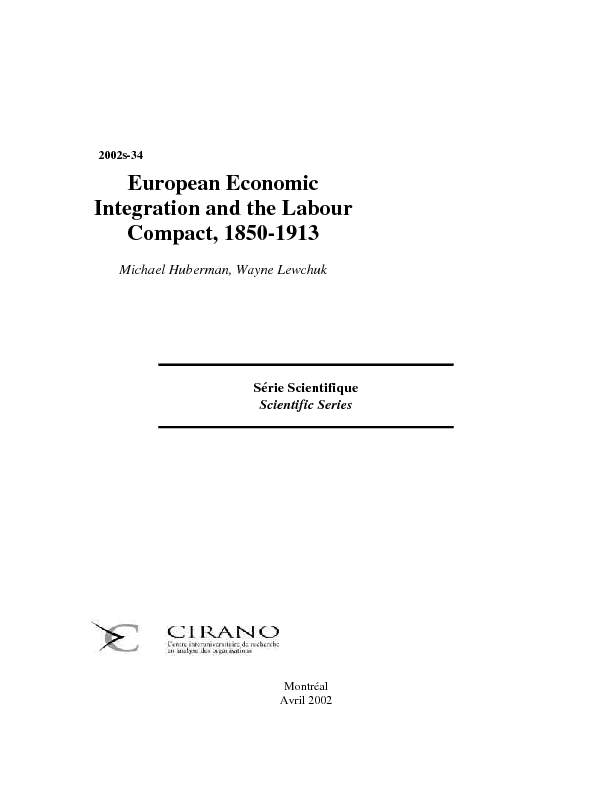European Economic Integration and the Labour Compact, 1850-1913
Globalization was a fact of life in Europe before 1913, but as trade shares increased, so did wage and employment instability. Faced by growing pressure from workers, national authorities established labour compacts - a packet of labour market regulations and social insurance programs - that defended workers against the risks they faced in and outside the factory. The labour compact provided workers with insurance because it compressed wage structures. We construct an index of labour market regulations and social insurance schemes for seventeen European countries and find that the extent of the labour compact varied with the level of openness. We conclude that the labour compact gave workers reason to support free trade because it protected them from external risk. Contrary to the received view, globalization before 1913 was compatible with state intervention. Our findings are consistent with Rodrik's and Agell's for the period after 1945.
[ - ]




